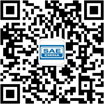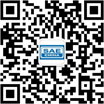Since 2004, the start of Evaluation of Professional Level of Automotive Engineers (hereinafter referred to as the level evaluation), under the guidance of China Association for Science and Technology, the Alliance established a complete system of level evaluation and international standards of evaluation, which has gained high recognition from automotive engineers, employers and social communities over the last decade. Since 2014, amid a new turn of national government streamlining, the implementation of innovation-driven strategy and intensifying globalization, China-SAE reformed with strong determination and opened a new stage of the level evaluation.
(I) Working Objectives
1. Guided by the international mutual recognition, China-SAE aims to meet the needs of automotive engineers, employers and social communities, and to establish and improve the automotive engineers’ peer recognition system.
2. China-SAE will continuously upgrade self-evaluation abilities, actively participate in the national title (vocational qualification) system reform, and undertake the transfer of government function.
(II) Basic Ideas
1. The basis is the evaluation systems of the levels of national societies. At the end of 2014, under the guidance of China Association for Science and Technology, 15 national engineering societies organized the Working Group of the Evaluation of the Levels of the Professional Technological Personnel of National Societies (or for short, the Working Group of the Evaluation of the Levels) in Beijing. Under a new situation, it aims to implement the strategy of developing together, put the wisdom and efforts of everyone together, and strengthen the evaluation systems of the levels of national societies as soon as possible in order to formulate the operation mechanisms, restraining mechanisms, service mechanisms and publicity systems which can be responsible and accountable, and to meet the needs of the growth of professional and technical personnel and provide favorable basis for the selection and employment of the society. Since the establishment, the Working Group of the Evaluation of the Levels has been actively promoting the unification of evaluation criteria, evaluation procedures and evaluation certificates of the societies within the Working Group, has achieved the goal of realizing the coordination among national societies of improving working mechanisms and systems, establishing scientific standards of evaluation, and building information platforms. In addition, through organized task researches and practices of evaluation, the Working Group has continuously enriched the connotation of peer recognition system, enhanced the capacity of national societies to serve the innovation, the society and the scientific workers, built the working platforms to find, train and encourage the growth of professional technological talents, and made contributions to the scientific innovation. As the leader of the societies in the Working Group, China-SAE has played an important role in these achievements.
The Societies aim to formulate supplements and improvements to the government system. In accordance with the shortcomings of government-oriented title (vocational qualification) system, the supplements and improvements are made according to market demands as follow: supplements-international mutual recognition, non-public areas, and emerging areas; improvements-professional segmentation, capacity-orientation, peer recognition, and periodic review.
(III) Working Progress
By the end of 2015, the Evaluation Systems of the Levels of National Societies have awarded accumulatively more than 100,000 engineers evaluated certificates, and formed an annual evaluations of the scale of tens of thousands of people. China-SAE, as one of them, accumulatively evaluated 5,000 people and awarded more than 2,000 certificates. In 2013, during the third party evaluation, commissioned by China Association for Science and Technology, the evaluations of National Institute have been well received, and the evaluations of China-SAE have also got a highly approval in all aspects.
(IV) Evaluation Characteristics
1. Marketization. Evaluation of Professional Level of Automotive Engineers aims at serving members, selecting qualified person, and putting them in a proper position, which specifically embodied in accordance with the job characteristics and development rules of the automotive industry engineers. The level of evaluation are meticulously divided into 8 professional fields which includes automobile products, automobile manufacture, automobile electricity, automobile material, automobile diagnosis, automobile marketing, automobile management, and automobile model; the Society designates trainee engineers for the universities graduates who are going to enter workforce to upgrade their adaptabilities; with the aim of promoting the development of the professional and technical talents, the Society has placed the evaluation of talent throughout the entire process of the engineer's career that includes graduation and entry, independent work, competency in key positions, capability of being the pace-setters, becoming experts in auto industry, and organically integrating with China-SAE’s other businesses.
2. Professionalization. Evaluation standard is guided by ability, emphasizing more on performance than qualification; it also evaluates the level of the engineer from the five dimensions of professional ability, communication ability, professional ethics, project management ability and leadership ability, which help to abandon the degree-oriented and paper-oriented tendency. Evaluation process highlights peer recognition, making the advantages of sci-tech associations outstanding. Through the establishment of scientific standards (competency standards, evaluation criteria, assessment standards), and reasonable work processes (evaluation methods, assessment methods, expert review manuals), effective team (talents evaluation committee, the Secretariat, experts, authorized institutions) and strict management system (operation, supervision, feedback, evaluation), our work is to assure the fairness and impartiality of the evaluation.
3. Internationalization. Aiming at pursuing the international mutual recognition, the Evaluations of Automotive Engineers strive to be geared both to international standards and domestic ones, from the standard to the progress, as well as to take the national conditions into consideration. It should satisfy not only the “go global” demand of individual engineers, but also the “go global” and “bring in” demand of enterprises.
The Evaluation Systems of Automotive Engineers built by SEA-China intends to be one of the symbols of the increasingly “soft power” of China automotive industry, contributing to the enhancement of Chinese global competitiveness.
(V) Competency Standards
1 Nation Academy Engineer Competency Standards, Nation Academy Engineer Competency Standards (for short the Society Standards) was developed and released by Level Evaluation Academy Society.
During the formulation of the Society Standards, the Society has studied the historical evolution and existing problems of the title (vocational qualification) system from countries and regions like Britain, Japan, US, German, and APEC, etc. It has learned the concept and standards of registered engineer and professional accreditation of engineering. Aiming at resolving the long-existing problems of the assessments of professional titles (vocational qualifications) in different fields and areas, namely the extensive evaluation standards, differences in operation and recognition, the Society Standard is to promote rational high-tech talents flows and establish foundations for Chinese engineers to realize mutual authentication with the world.
Characteristics of the Society Standard are as follows: strengthen professional self-identity to establish values shared by all the professional and technical personnel; improve competency-based ability to reinforce the problem solving ability of professional and technical personnel; advance engineering ethics to highlight the social responsibility and professional ethics of professional and technical personnel; respect the development laws of professional and technical personnel which reflect the professional sustainable development of their own; meet the requirements of China’ s “go global” strategies, which is in line with the international standards.
Accordingly, the Society Standard holds different requirements of professional competence, communication skills, professional ethics, project management and leadership competencies for apprentice engineers, trainee engineers, engineers, senior engineers, and experienced engineers.
2. Automotive Engineer Competency Standards. Combining features of the automotive industry, Automotive Engineer Competency Standard (Automobile Standard for short) grew out of the Society Standard and was enacted and launched by China-SAE.


